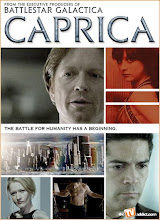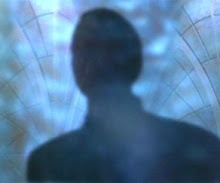If you read comic books, you've probably at least heard of Seduction of the Innocent, a work of paranoid demogoguery by psychiatrist Frederic Wertham.
Wertham's infamous 'findings', that comics were a root cause of just about every societal ill, from juvenile crime and homosexuality to asthma, were based on anecdotal evidence and less than scientifc or impartial methods, but nobody much cared. He was telling Mr and Mrs America what they wanted to hear.
Wertham would testify before a Senate Subcommittee in a hearing that would prompt the creation of the Comics Code Authority. It's said that this was a turning point that strangled the industry, and though the extremely popular horror and crime comics were dealt a heavy blow, the superhero comics bubble had pretty much burst by the early 1950's. The publishers might have been arm-twisted somewhat into creating the CCA as a self-censorship body, but nobody actually meant to produce anything considered offensive or morally suspect. Transgression was not in vogue at this point in history.
In any society, but particularly among those conservative and middle-class, there's the tendency to scapegoat, to find one individual or group or movement or art form on which everyone can focus all their anxieties and say, 'There! This is the problem, this is what's threatening our way life. It must be ostracized, it must be destroyed'. And you don't get much more conservative and middle-class than pipe-smoking, argyle-clad 1950's America.
After the War, the old order had been shaken to its foundations and even the most traditional of people were asking what new opportunities would be open to them, what would and would not stand in this new, fractured world. The sentiments of solidarity and moral certainty were dissipating, everything was in flux and one of the most visible changes was the rise of youth culture. Before this point, teenagers were simply thought of as older children. For these kids to refuse to keep their place and actively rebel against the ideals and values of their parents was as baffling as it was alarming. People simply didn't understand where their children were getting all these ideas and they were scared. The fact is, if Wertham hadn't written Seduction of the Innocent, someone else would have. Comic books, like the horror movies, heavy metal and video games in the decades that followed, were simply a very big, very easy target.
There's always a Frederic Wertham or a Mary Whitehouse somewhere, the self-appointed moral guardians and cultural arsonists are always with us. In Britain in the 80's, the video nasies furore saw confiscations, censorship and outright bannings at the hands of government and law enforcement officials, each with their own definitions of what constituted "obscene material". The idea of video classification was common sense, but allowing our leaders to decide arbitrarily what we should and should not be allowed to see, without any sort of public debate or enquiry was taken entrirely for granted. Now, this should have given every thinking person in the nation great pause, but it didn't. The sad fact remains, people en masse like being nannied in this way, and that's something that even the most strident teenage idealist has to come to terms with, eventually.
The damndest thing about adulthood is when it dawns on you that opinions you once thought set in stone have shifted. This stems from the bitterly hard-earned lesson that life is a long collage of compromise and ambiguity, and that the world is built on the backs of millions of people not thinking too hard about how things actually work. Not so long ago, my own world view was broadly black and white. I don't think of myself as 'liberal', I don't like the word or the baggage it carries, but I can live with 'leftist'. I was dead set against any kind of censorship. 'Where does it all end?', was my fear. Once we give our leaders carte blanche to make up our minds for us, it opens a door that's hard to close. I still believe that, but I also realise that the issue is a complex one.
A small hadful of those video nasties remain banned in the UK, many were released with cuts, some relatively extensive (up to several minutes). Some horror connoisseurs see this as a decades-old injustice and shout for uncut releases, but since most of the excised footage involves either sexual violence or real life animal slaughter, do I really want to be signing those petitions myself? Frankly, I can live without seeing that stuff. Frankly, I think anyone can (and should) live without ever seeing I Spit on Your Grave or Cannibal Holocaust.
I'm biased, of course. I don't like the horror genre, I avoid it as much as possible. I loathe slasher flicks and torture porn, but I do have time for something like The Blair Witch Project. Easy to deride it may be, but I have no problem with a film that tries to scare its audience, and that does so by showing us nothing whatsoever, both extremely rare these days. Any idiot with a film crew can produce something that turns the stomach, but in modern Hollywood he has millions of dollars and A-list talent behind him. Scenes of atrocity that were once the province of grubby, obscure exploitation fare now sit happily alongside romcoms, kids films and summer popcorn tosh. A quick skim of the horror movie reviews in any number of magazines finds protests of "unoriginal" and "boring" torture and murder scenes. People come away from The Human Centipede, complaining that it was too tame, having pressumably expected (hoped for?) a kind of Hollywoodised "2 Girls, 1 Cup". No worries, folks, the director promises an appropriately grand guignol sequel. People watch the Freddy's and Jason's slice and dice with glee, and cheer when the monsters always survive at the end. Cultural pundits refer to these characters as folk heroes.
I was actually rather impressed with the first Saw, but I knew the sequels would simply revel in nastier and more inventive traps and tortures, so I made a point not to see any of them. Then they went and turned Saw into a ride at Thorpe Park. Go check out the website. You're kids will love it.
I am not my parents. I don't buy the Daily Mail. Perhaps this stuff shouldn't bother me, but it does. When I see or hear something disturbing, it disturbs me. It might bother me for days on end. How, I've asked myself again and again, can people enjoy this shit?
It's been suggested that such movies aren't that different from action-effects features, which typically include a large bodycount and are never taken all that seriously by the people seated in the theatres. Hardly. Action movies are more about pyrotechnic one-upmanship than sadism, and at least we also know the villain will pay for his crimes. My conscience doesn't trouble me when I watch a stylised depiction of a murderer getting his just desserts. It's cathartic, it's satifying. Good guys triumph, bad guys lose, as they always must. That to me is a healthy thing to send the audience home with. A screaming woman being skinned alive is not.
I know culture evolves, as does the vocabulary of movies. People have stronger stomachs, they demand more realism. Yesterday's nightmares are today's Beanie Babies (when was the last time Dracula or Frankenstein actually scared anybody? 1930-something?). We should be damn proud of our embattled artistic freedom of expression. Audiences aren't desensitized, they're just more mature.
And yet... I cannot ignore the nagging feeling in my gut that we must eventually draw a line somewhere. In the UK today, pornography classified as 'extreme' is outlawed, but that seems to be it.
For God's sake, I'm a bisexual atheist lefty, and even I'm wondering if there's anything we won't allow anymore.
I think perhaps I can at least sympathise, up to a point, with those people who raised hell when David Cronenberg's Crash opened in 1996. Their feeling was that if a film such as that, an icily inaccessable arthouse piece, with that subject matter could find not only a general release but a mass audience and critical approval, then surely civilization itself must be on the very precipice. It was a storm in a teacup, with the Mail, true to form, on the forefront. Mail critic Chris Tookey damned the movie in a typically histrionic review, but it's his recent write up of this year's Kick-Ass that really caught my eye, when I found myself agreeing with almost all of it. Calling the film one of the most irresponsible ever made, his review trigged an internet shit storm that itself became subject of a news story (see Tookey's essay on the whole affair here http://www.movie-film-review.com/devFilm.asp?id=15578) and further public discourse about internet bullying.
Tookey wasn't the only one to condemn the film, and there were more than enough adolescent dickheads embracing the movie to prove his point, but then I also know people, intelligent, normal, respectable people who saw Kick-Ass and loved it, regarding it as just another slice of OTT entertainment, to be placed on the shelf next to Iron Man. So an 11-year old girl dresses sexily, says the word "cunt" and murders people as bloodily as possible, it's just a laugh! Like a more colourful Leon.
I'm not sure I can agree.
I never saw horror movies when I was a child, I wasn't allowed. I did see plenty of movies that scared me, though, a few that gave me nightmares. I don't plan to have kids of my own, but if I had them now, I certainly wouldn't be inclined to let them see Kick-Ass, or The Dark Knight like the one guy who brought his two little 'uns to the screening I attended. A boy and girl, neither could have been older than 7 or 8. They sat quietly throughout the entire movie.
No, let them see Return to Oz, like I did. It'll give them a few sleepless nights, but they'll be grateful for it one day, when they're grown up.
Monday, 23 August 2010
Subscribe to:
Post Comments (Atom)


















.jpg)












No comments:
Post a Comment